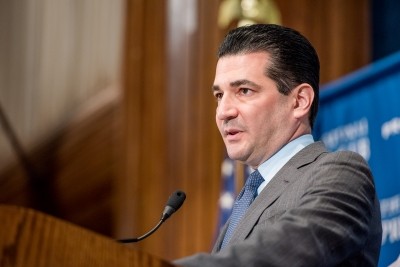FDA enforcement action on Alzheimer's claims ensnares 17 companies

The twelve warning letters were posted this morning in conjunction with a statement from FDA Commissioner Dr Scott Gottlieb, MD. In the statement, Gottlieb laid out a sweeping vision for the modernization of the way FDA regulates the dietary supplement industry and responds to safety concerns.
Warning letters came from website reviews
The 12 warning letters arose as a result of FDA reviews of the websites of the companies involved. All the companies made claims associated with Alzheimer’s disease that meant that their products had become unapproved drugs, the agency alleged.
Ten of the companies were from the United States. One is located in Canada and another in India. The US based companies were broadly distributed geographically. Nine states were represented in the list (two companies were in Florida).
Some of the 12 companies marketed products with ingredients that are commonly grouped into the nootropic category of ingredients or those thought to have cognitive effects. These included AlphaGPC, Bacopa monnieri, phosphatidylserine and St. John’s Wort.
All types of ingredients represented
But the wide range of ingredients included in the products showed that marketers across the spectrum of the industry have fallen victim to the temptation to include Alzheimer’s disease treatment claims in their marketing language. Other ingredients included in the enforcement action include omega-3s, green tea extract, avocado oil andCoQ10.
Some of the ingredients fall into the penumbra of smart drugs: Noopept, piracetam, phenylpiracetam, aniracetam and phenibut. The American Medical Association sent out an advisory to doctors on these ingredients in 2016.
Obeying the speed limit
Ivan Wasserman, of the law firm Amin Talati Upadhye, said the action today helps his firm deal with clients who chafe at having to obey the speed limit, so to speak, when others don’t.
“When we advise companies that certain claims are not allowed for dietary supplement, sometimes they send us links to websites for many products making the very same claims, and they ask ‘How are they getting away with it?’” Wasserman told NutraIngredients-USA.
“Our response is always three-fold. First we say we are not their attorneys. Second, we say FDA (and FTC) have limited resources, and it impossible to completely police the internet. Third we say we don’t know that they are ‘getting away with it’ because FTC and FDA investigations are private until they are public. It is gratifying to see something like this when FDA and FTC take action against blatant violations,” he added.

















